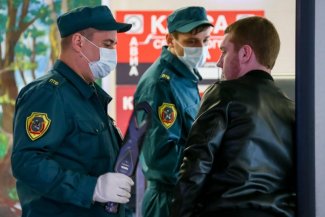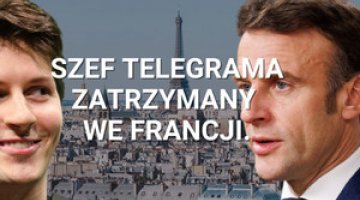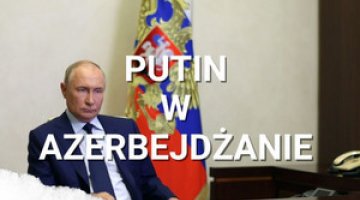Russia and the coronavirus pandemic: in praise of the besieged fortress

As of 1pm CET time on 18 March, 147 people in Russia have been diagnosed as infected with the SARS-CoV-2 virus. Most of them are in Moscow (88), while five cases have been recorded in Kaliningrad. So far over 122,000 tests for coronavirus have been carried out in Russia. In recent days, despite the steps taken by the Russian authorities, the number of infected has risen rapidly. The authorities initially focused on isolating Russia from the main centres of the epidemic, principally China, and then Iran and European countries; eventually it was decided to close the borders to all foreigners. At first, the measures introduced to prevent the epidemic from spreading within the country were quite moderate, limited to recommendations to the elderly to remain at home. However, as of 16 March bans on gatherings were introduced, while museums, theatres and schools were closed.
Politically, the consequences of the pandemic may be favourable for President Vladimir Putin and serve to strengthen his position even further. At the present stage its economic effects on Russia are difficult to estimate yet;these will depend on the longevity of the epidemic and the severity of disruption it causes to the global economy. The Russian government is quite optimistic because it has accumulated sizeable financial reserves. Nevertheless, there is little doubt that this year Russia should expect a growth rate of near zero or even a recession, as well as the appearance of a budget deficit. The pandemic is also becoming increasingly important for Russia’s international relations. First of all, the epidemiological crisis and Russia’s closure of its borders have revealed its distrust of China; it has also become another factor in the already tense relationship with Belarus. Moscow is also taking advantage of the current situation to carry out an anti-Western information war.
The epidemiological situation and preventive measures
The number of infected in Russia has been rising rapidly in recent days: on 15 March there were 63; the next day the number had risen to 93, to 114 on 17 March, and 147 on 18 March. The largest numbers of cases are in Moscow (88), the Moscow oblast (12) and St. Petersburg (9). In total, the virus has reached 26 regions of Russia. A large number of tests have been conducted; these were developed by the Vektor state centre for virology in Novosibirsk, but in comparison with the tests made by the EU and China they are more basic and consequently less sensitive, requiring a high concentration of virus in the sample. Their advantage is that results can be obtained quickly (within 2-4 hours). New tests are being developed.
The Russian authorities have taken a number of measures aimed at limiting the spread of the coronavirus and combating its effects. Its initiatives are focused primarily on self-isolation by restricting the potential influx of the virus from abroad. At the end of January Russia closed its borders with China and Mongolia, reduced air and railway connections with these countries, and banned Chinese nationals from entering Russia. As the coronavirus spread around the world, similar restrictions were also applied to Iran and the EU, Norway, Switzerland and Ukraine. On 16 March the government decided to close its border with Belarus, and on 18 March a ban on all foreigners entering Russia was introduced (with the exception of diplomats and their families, persons having right of residence, professional drivers and air crews, and persons travelling in transit through Russian airports).
Measures to reduce internal traffic are becoming more restrictive every day. On 17 March a decision was taken to close all federal facilities supervised by the Ministry of Culture (museums, theatres and circuses). In addition, a recommendation to restrict mass events throughout the country was introduced. As of 23 March, all schools will begin a three-week holiday, although kindergartens will remain open. Universities have not been officially closed, but a significant portion of their directors have decided to switch to remote teaching. Public transport is operating normally. The most serious restrictions apply to Moscow, where on 16 March the local authorities decided to ban any street gatherings, as well as meetings in closed premises of more than 50 people (although this does not apply to shopping malls and restaurants).
Economic actions and their consequences
In the fight against the consequences of the pandemic, the government announced on 16 March that tax breaks, cheap loans and guarantees would be made available to the businesses which have suffered most (mainly in the tourism industry and aviation), and that a fund of 300 billion roubles (c. US$4 billion) to support the economy would be set up.
In the case of Russia, the economic consequences of the coronavirus pandemic and the falling oil prices will depend on how long these factors persist. At present, the Ministry of Finance’s forecasts are quite optimistic. They are based primarily on the high levels of reserves (the National Welfare Fund contains over US$124 billion); these will finance the budget deficit, which will appear when the average annual price of oil falls below US$42.40 a barrel (this was the price on which the budget was based). The Ministry forecasts that if the average oil price in 2020 is US$35 a barrel (on 18 March the price per barrel fell to US$28), then the budget deficit will amount to c. 0.8% of GDP, and that instead of the expected GDP growth of 1.9%, the actual figure should be estimated at around 0%. Analysts suggest that the economic consequences could be much more serious, and that a recession should beexpected. The losses Russia may incur if oil prices remain low could induce Moscow to resume talks with OPEC in order to bring an end to the price war being waged by Saudi Arabia, especially as the previous agreements were favourable for Russia and basically did not restrict its production.
The government’s latest announcements reveal that the National Welfare Fund will spend around 600 billion roubles (US$7.6 billion) in 2020 in order to cover the budget deficit. Another 2 trillion roubles (US$25 billion) will go to finance the social package announced by President Putin in his January message (because the fund is not allowed to finance current budgetary expenses, the government has developed a special scheme for buying back a majority stake in Sberbank, Russia’s largest bank, from the Central Bank of Russia). However, the plan is for a safe amount of resources (over 7% of GDP) to remain in the fund by the end of the year; the government will be aided in this by the rouble’s weakening exchange rate, as the fund’s keeps its assets in foreign currencies while its expenditures are in roubles.
The decline of the rouble (on 18 March US$1 cost 79 roubles, compared to 63 roubles a month earlier) will affect the population’s standard of living; prices for imported goods are rising, as are the costs of servicing foreign currency loans. However, due to the low economic activity in Russia and the low levels of domestic demand, inflation will probably not rise dynamically; at the end of the year it should stand at around 4%.
Political actions and their consequences
To coordinate the fight against the coronavirus pandemic in Russia, two essentially overlapping bodies have been created. On 15 March, the President appointed a working group within the State Council, that includes members of the government and representatives of the regions), while the Prime Minister Mikhail Mishustin formed a Coordinating Council for Fighting the Coronavirus, which is subordinate to the government. The mayor of Moscow, Sergei Sobyanin is heading the working group while simultaneously being the deputy head of the Coordinating Council. The Kremlin has explained that these are not meant to be rival bodies, and that the Coordinating Council is to play the primary role, overseeing all activities undertaken in the country associated with the fight against the coronavirus and its consequences. At its first meeting, the Prime Minister praised the Moscow government’s actions in this area, and recommended it as an example to the other regional authorities. Meanwhile the working group has been tasked with drawing up concrete recommendations for action at the regional level.
Also, an Information Centre has been established to monitor the situation in relation to the pandemic, including preventing the dissemination of information that could cause panic (such as reports of panic buying in stores or pharmacies). Since the beginning of March Roskomnadzor (the service which monitors the Russian internet) has begun to block reports on social networks about the coronavirus which the authorities deem to be unreliable and a threat to national security. As is customary, concerns have been raised that Roskomnadzor could abuse its power in order to restrict freedom of speech.
Kremlin propaganda has consistently emphasised the external nature of Russia’s current problems, portraying it as something unrelated to the state authorities’ policies. This also applies to the sharp drop in oil prices, which the government says is primarily the result of declining demand for energy resources due to the pandemic. At the same time, Saudi Arabia is being blamed for violating the OPEC+ agreement. Meanwhile, pro-Kremlin media are trying to demonstrate the effectiveness of the measures which the authorities have taken to combat the coronavirus, their concern for society, and their readiness to increase social support. These reports are juxtaposed with stories of ‘chaos and panic’ in the West.
So far Russian society has mostly been the passive recipient of the Kremlin’s propaganda. In the face of the epidemiological risk, it will as usual look to the government and the authoritarian leader for support. In addition, over the next few weeks the poorest citizens will most likely receive the state support which was previously announced, which will further boost the government’s image among the public. The mood of opposition among the urban intelligentsia will probably be marginalised (at present their criticism of the authorities is focused on the content and procedures of the constitutional amendments), and its expressions in the coming weeks will be confined to social media. The Moscow authorities’ ban on street gatherings will be an effective tool against the opposition.
As a result, if the authorities do not display drastic negligence, the public can be expected to acquiesce in the decision to reset Putin’s presidential term. The ‘vote’ on the constitutional amendments is scheduled for 22 April. The Constitutional Court’s instantaneous ruling confirming the constitutionality of the proposed amendments indicates that the Kremlin does not want to delay the date of the plebiscite, but the fast spread of the coronavirus may force it to do exactly that (in a statement on 18 March, the president’s spokesman Dmitri Peskov did not rule it out).
The coronavirus could undoubtedly thwart Russian plans to commemorate the anniversary of the end of World War II and organise a parade in which foreign guests participate. However, the social effects (national pride and consolidation around the leader) which the parade is intended to evoke could partially be replaced by a mass mobilisation of the citizens and the government to combat the epidemiological threat.
Russia’s actions on the international stage, and the implications for relations with foreign countries
In its relations with China, Russia has declared its sympathy and readiness to send assistance (it has sent a transport aircraft with medical supplies), which has met with expressions of appreciation from the Chinese side. At the same time, however, the drastic measures taken in January (closing the border and banning Chinese citizens from entering the country) showed that Moscow distrusts both Beijing’s information and its response to the pandemic. The Chinese embassy has accused the city authorities in Moscow of discriminatory treatment towards its nationals in the context of the preventive measures being taken against the spread of the virus. What caused particular concern for the Kremlin was Beijing’s information policy concerning the pandemic; the Kremlin has also had an opportunity to realise the degree to which the Russian economy is dependent on China. After all, , the diversification of the Russian economy resulting from enhanced cooperation with China has not made it immune to disruption. However, the strict restrictions on Chinese citizens introduced by the Russian Federation should not lead to any fundamental changes in its policy towards China, because of the durable convergence of basic interests between the two countries.
The consequences of the pandemic could have the greatest impact on the relationship between Russia and Belarus. The closure of Russia’s border with Belarus (with which it forms the ‘Union State’) to the free movement of people, has already provoked an open dispute between President Alyaksandr Lukashenka and Putin’s government & administration. This may become another argument for Lukashenka in his bargaining with Moscow and the ongoing process of convincing Belarusian society that, contrary to its declarations about the unity of the Russian and Belarusian people, Russia has failed to show its neighbour any solidarity in the face of the pandemic.
The first signals have appeared of Moscow exploiting the pandemic in its conflict with the West. On 16 March the Russian foreign ministry sharply criticised the United States for maintaining its ‘anti-humanitarian’ economic sanctions against Iran, which it claims are ‘an important obstacle to an effective fight against the coronavirus’, and are thus contributing to an increase in the number of victims.
Russian media commentary on the course of the pandemic abroad is currently based around two narratives. The first concerns the ineffectiveness or even helplessness of the European Union’s institutions in the fight against COVID-19, and the lack of coordination or solidarity among its members. The second highlights the irresponsible and selfish nature of the American response to the situation, and the failure of trans-Atlantic solidarity; much attention has been drawn to the closure of the United States’ borders to EU citizens and the spurious attempts by US companies to take over a German pharmaceutical company.
The Russian media have noted with special satisfaction the US’s gradual reduction (presented as a withdrawal) of the Defender-Europe 20 exercises currently being held on NATO’s eastern flank ( hinting that ‘if they are so scared of a mere virus, will they defend you against an aggressor?’). In general, the commentary stresses that the West’s response to the pandemic confirms the Russian perception of international relations, namely that the liberal model of globalisation is collapsing, national selfishness predominates, and Russia’s ‘besieged fortress’ strategy is justified.
In cooperation with Witold Rodkiewicz




